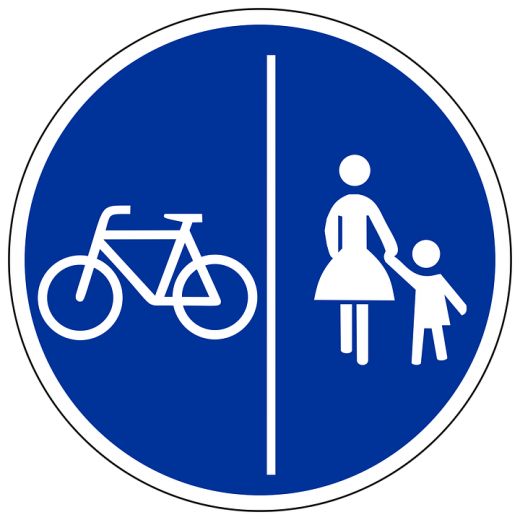Culture shock. It happens to everyone. Well, everyone living in a new country, anyway. I definitely experienced my fair share during my first few months in Germany. Are you planning a move to Deutschland as well? Nothing beats experience, but with a little preparation, you can make your own move to Germany go as smoothly as possible.
Here are some of the most important things to know about Germany, to minimize your culture shock and put you on the fast-track to integration.
Don’t Take it Personal
Germans are known for being direct. Depending on your own culture, you may even find them downright rude. It’s important to keep in mind, though, that Germans have a somewhat different idea of polite social interaction. To your average German, telling you that your outfit looks nice when it doesn’t is what’s actually rude. What if you make the mistake of wearing it again?
Similarly, if you complain about something that appears to be your own fault, don’t expect any sympathy. Whining about how cold you are might garner pity from an American; if you’re on a date, they might even offer you their coat. Just don’t expect that from your German beau. He’s more likely to shrug and say, “you should have worn something warmer.”

It’s not rude; it’s just practical advice. You won’t do it again, will you? This is the culture shock most (new) expats in Germany find the most jarring. After a few months, though, you might realize that you now prefer the direct approach.
Use Your Inside Voice
German cities have quiet hours and, unlike quiet hours in other countries, they’re actually enforced. Your city’s hours may be different from a neighboring city, but (generally speaking) you’re expected to stop making loud noise after 10PM. This means no vacuuming, hammering, or blasting loud music. Don’t be surprised if your neighbors knock on your door simply because you were “walking too loud;” especially if you’re in an older building.
The real culture shock will come on your first Sunday, though, when you’re still building up your new home. On Sundays, the quiet hours are all day. Unless you have particularly ornery neighbors, you can probably get away with vacuuming. Just don’t expect to undertake any home improvement projects, and don’t even think about mowing your lawn.
Where There’s Smoke…There’s Germans
Depending on where you’re from, this may not be a culture shock at all. If you’re a non-smoking American, though…well, this one really blows.
Germans (and Europeans in general) love to smoke. They will bemoan the unhealthy food in America with one breath, and take a long drag off their cigarette with another.

Smoking isn’t allowed in most restaurants, but it’s still inescapable outside. Outdoor seating is very popular in Germany, and while that space is also smoke-free in America, that’s not the case here.
Recycle…or Else!
Recycling isn’t an option in Germany. It’s required. Sort your plastic into the yellow bins, your paper into the blue, and everything else in the black. Glass bottles go in separate bins as well, all organized by color. Electronics must be taken to a recycling facility.
For me, this wasn’t really a culture shock. I was very happy to find out that Germany (unlike my home country) actually takes recycling seriously.
Depending on where you live, you might also be expected to recycle your organic waste.
Restrictive Shopping Hours
Germany has very restrictive shopping hours, and even when they aren’t enforced by law, many shops seem to have a very “meh” attitude towards making money. It’s rare to see a boutique open past 6PM, and even the mall closes by 8PM; yes, even on Saturdays. A true culture shock for those of us coming from a more capitalist country.
Grocery stores are just as bad; there’s no such thing as a 24/7 grocery store in Germany. At the latest, big stores like Real are open until Midnight on Fridays and Saturdays. When it comes to discount shops like Aldi and Lidl, you’re lucky if they’re open past 8PM.

Banks and doctor’s offices also have very inconvenient hours. It’s not uncommon for them to actually close for an hour during lunch, making it impossible to have an appointment during your own lunch break. Neither will be open on Saturdays, and you’ve basically found a unicorn if you discover a bank that’s open past 2PM on a Friday.
Pharmacies are usually closed by 7PM. That might not sound so bad at first, but…
Pharmacies and Drug Stores
Drug stores do not carry real medicine. They do have some homeopathic “remedies,” as well as various vitamins and supplements, but all real medicine must be purchased at the pharmacy. This includes seemingly benign things like aspirin or allergy pills. If you’re from a country where you can pick out over-the-counter medication on your own, this will seem like an especially infantilizing culture shock.
Get ready to describe your symptoms in detail to the pharmacist, no matter how embarrassing.
Post-Apocalyptic Sundays
You cannot go shopping on Sundays in Germany. There are a few exceptions, like small corner shops, a few grocery stores in U-bahn main stations, and gas stations. Consequently, small towns and city centers are like ghost towns on Sundays.
What does this mean for you? Well, you’d better have all your shopping done before stores close on Saturday. If you’re used to using your Sundays as a “catch-up” day, as I was, this might be the most annoying culture shock of all.
The good news is that restaurants, cafes, museums, art galleries, and many historic landmarks are still open. Soon, you might find your inability to go grocery shopping on Sundays surprisingly relaxing, just as I (finally) do.
Cash Money Takin’ Over Like it’s ’99 or 2000
A lot of (outdated) guides will tell you that it’s impossible to pay with a credit card in Germany. That’s simply not true. It’s not impossible, it’s just difficult; at least in restaurants.
While most stores will gladly accept credit these days, many restaurants only take cash or the occasional debit card.
Make life easier for yourself, and always keep cash on hand if you’re planning to eat at a restaurant.
Grocery Shopping: Off to the Races
You bag your own groceries in Germany; even in the “nice” grocery stores. If you don’t have your own bags, it’s time to buy them, because the cost will really add up if you keep buying the paper bags in the store.
Another major culture shock for the average native English speaker: cashiers scan your items like they’re competing in a produce-themed race. Rare is the cashier who bats an eye at sending your carton of eggs hurtling towards the glass bottles you’re struggling to pack away.
Don’t be surprised if the cashier scans your last item with one hand, while holding her hand out for your payment with the other, with a look that says, “why didn’t you pay three items ago?”
For a more in-depth look, check out my guide to grocery shopping in Germany.
Everything But the Bathroom Sink
And now we come to the culture shock topping every “10 X Things About Germany!” list. Typical German apartments do not come with anything pre-installed, except the bathtub and bathroom sink. This means you have to buy and install your entire kitchen, as well as all of the light fixtures in your apartment. There are some exceptions to this rule, but they almost always increase your rent. The previous tenant may, for example, sell you the kitchen rather than taking it with them. Some newer complexes also come with pre-installed kitchens and light fixtures. The rent will reflect these generous “extra” amenities.
If you’re coming here temporarily and working for a large company, and they’re providing you with housing, this may not be a concern. If you aren’t sure, though, find out; it’s a bit of a nasty shock to discover you’ve got to make an unplanned trip to IKEA.
Making Friends and Influencing Germans
It’s tough making friends as an adult; even tougher when you’re living in a new country.
The stereotype about Germans being hard to get to know is true. Generally, Germans stick to the people they’ve known since school and only let in new people if they’re introduced to the group through other friends.
In many countries, bars, clubs and big public social events are a chance to meet new people. After all, why not have a house party if you want to stick with your friends. It’s cheaper, right?
With few exceptions, this isn’t the mindset in Germany. Expect funny looks if you try to strike up conversations with strangers; another culture shock for those from more gregarious countries.

So, how do you make friends in Germany? You join a club, of course! And no, I don’t mean a dance club. Whatever your interest, there’s probably a club nearby. If you live in a small town, finding a niche interest club might be difficult, but you can always look in the nearest big city.
Alternatively, taking classes can help you meet new people. Your local Volkshochschule (essentially, adult education) is a great place to learn some new skills at a low price, while also meeting new people.
Get Your Motor Running
Let’s get one major misconception out of the way: the Autobahn does have speed limits. There are a few stretches where you can go as fast as you want, but they’re usually through the middle of nowhere.
Depending on where you’re from, you can drive on your foreign license for six months in Germany. After that, you will need to get a German driver’s license. Some US states have reciprocity, meaning you won’t need to take a test.
You can read more about driving in Germany here.
Most Important of All: Learn the Language
As much as people joke that everyone in Germany speaks English, that simply isn’t true. Unless they need English at work, most people stop learning (and using) English once they leave school.
You will also encounter plenty of people who actually speak very good English, but you’ll never know because they refuse to speak it with you. Why? Well, either they just don’t want to or they’re afraid of making mistakes.
In the case of government employees, speaking English with you could create liabilities. The lady taking your temporary residency application isn’t being mean; she’s just protecting her job.
Not only is it rude to spend years in a new country without learning the language, it’s impractical. You will limit your opportunities; not just socially, but also in your career if you’re planning to stay here long-term.
Yes, even if you’re moving to Berlin.
If you haven’t moved to Germany yet, you can get a head start by downloading free language learning apps like Memrise or DuoLingo.






Love it! I think we’re both adapting to German culture by not being offended by the directness while conversing… I am concerned about the driver’s license aspect, it’s definitely past 6 months, and I’d really just prefer to exchange an CAD license for a DE one (we’ll see how that goes!).
Good luck! It’s so expensive if you can’t do an even exchange; I really hope it works out for you!
Touché